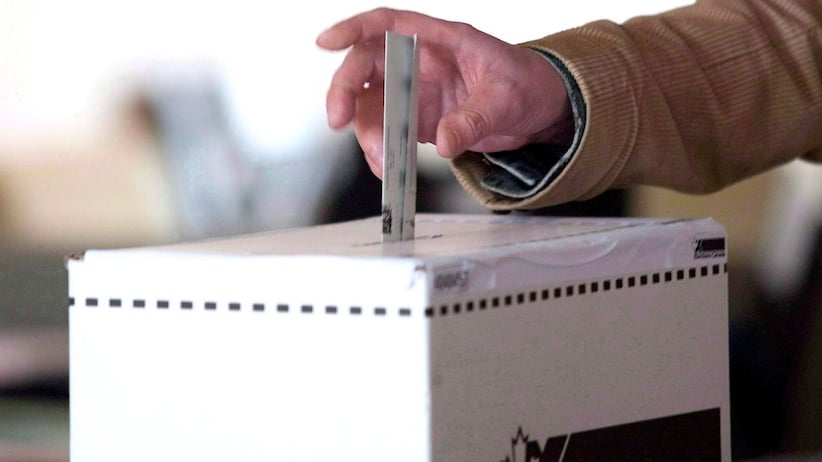Your morning five: Robocalls probe hears new testimony
Also: A Canadian journalist is wounded in Afghanistan
A man casts his vote for the 2011 federal election in Toronto in this May 2, 2011 photo. Newly released court documents describe how a junior Conservative staffer in Guelph, Ont., charged with elections offences bragged about his allegedly fraudulent exploits to other young partisans.THE CANADIAN PRESS/Chris Young
Share

We tell you five things you need to know this morning.
1. Canada’s robocalls probe hears new testimony. The Ottawa Citizen reports that the latest claims come from Andrew Prescott, a Conservative campaign worker in Guelph, Ont., during the 2011 federal election. Prescott says candidate Marty Burke’s campaign manager, Ken Morgan, was somehow involved in the controversial robocalls that allegedly misdirected voters. Prescott also said that Michael Sona, another campaign worker and the only person charged in the ongoing scandal, hollered triumphantly when the robocalls went through. Absolutely nothing has been proven in court, but a trial awaits.
2. Police attacked two female journalists in Afghanistan. The Taliban might be responsible for a campaign of fear in advance of the country’s presidential election this weekend, but Afghan law enforcement was behind a shooting in Khost, near Pakistan’s border, that killed an Associated Press photographer and wounded a reporter. The photographer, Anja Niedringhaus, 48, died immediately. The reporter, a Canadian named Kathy Gannon, 60, was wounded twice.
3. Israel refuses a prisoner release. The moment Palestinian leader Mahmoud Abbas applied unilaterally for membership in international agencies, furthering his people’s quest for statehood, Israel reneged on a deal that would grant freedom to 26 Palestinians currently in Israeli custody. The prisoner transfer was contingent on Palestinians refraining from such applications. Israel’s move can’t be a surprise to Abbas, who said Israel missed a deadline to release the prisoners and insisted he had no intention of frustrating negotiations.
4. Bakken crude trundles through big cities. Canada’s railways have few routes that stick to unpopulated areas. Nervous residents who watch freight trains packed with petroleum—the disaster at Lac-Mégantic top of mind—will simply have to turn a blind eye to any fear of impending doom. The Globe and Mail asked Canadian Pacific and Canadian National if they could find alternatives to big cities. The short answer was no. The slightly longer answer, courtesy CP chief operating officer Keith Creel, was “not without shutting down commerce.”
5. McDonald’s won’t stay open in Crimea. The massive burger chain, a symbol of American enterprise and, hey, the occasional guilty pleasure, operates three restaurants in the former Ukrainian region—one in Simferopol, one in Sevastopol and one in Yalta. But the area’s fragile peace poses a security risk, so what McDonald’s called “operational reasons beyond [their] control” forced the chain to temporarily shut down its Crimean locations. No Big Macs for Crimea, then.